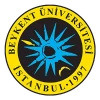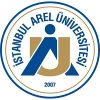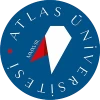In today's interconnected world, learning the Chinese language offers numerous advantages. As China continues to rise as a global economic and political power, proficiency in Mandarin Chinese can open doors to exciting career opportunities and foster cultural understanding. If you're interested in studying the Chinese language in Turkey, this comprehensive guide will provide you with valuable insights, resources, and opportunities to embark on a rewarding journey of learning Chinese. Let's delve into the details!
Challenges of Studying the Chinese Language in Turkey
Studying the Chinese language in Turkey comes with certain challenges that students may encounter during their learning journey. Here are some common challenges associated with studying the Chinese language in Turkey:
Limited Availability of Resources
Compared to more widely studied languages, the availability of comprehensive learning resources, textbooks, and materials specifically tailored for Chinese language learners in Turkey may be limited. This can make it challenging for students to find adequate and up-to-date resources to support their language learning.
Difficulty in Pronunciation
Chinese is a tonal language with a unique phonetic system. Turkish learners of Chinese may face challenges in accurately pronouncing tones and mastering the distinct sounds of the language. The unfamiliar phonetics and tonal patterns require dedicated practice and guidance from experienced instructors to achieve proficiency.
Character-based Writing System
Chinese characters, also known as Hanzi, are logograms that represent words or concepts. Learning and memorizing a large number of characters can be a daunting task for Turkish learners, who are accustomed to the Latin-based alphabet. Acquiring Chinese writing skills demands perseverance, consistent practice, and familiarity with stroke order and character radicals.
Grammar Structure
The grammar structure of Chinese differs significantly from Turkish. Turkish learners may need time to adjust to the absence of verb conjugations, gendered pronouns, and tenses as they navigate the sentence structure, word order, and grammatical nuances unique to Mandarin Chinese.
Cultural Context and Background
Chinese language learning is closely intertwined with Chinese culture, history, and social context. Turkish learners may encounter challenges in understanding cultural references, idiomatic expressions, and the cultural implications behind certain language usages. Developing cultural sensitivity and contextual understanding requires exposure to Chinese customs, traditions, and society.
Limited Immersion Opportunities
Compared to studying Chinese in China, Turkish students may have limited opportunities for immersive language experiences within a Chinese-speaking environment. This can impact the frequency of language practice and exposure to native speakers, potentially slowing down the progress of language acquisition.
Career Opportunities for Chinese Language Graduates in Turkey
Chinese language graduates in Turkey have a wide range of career opportunities available to them. As China's influence continues to grow globally, the demand for individuals with proficiency in the Chinese language and a deep understanding of Chinese culture is on the rise. Here are some potential career paths for Chinese language graduates in Turkey:
International Business
Graduates can pursue careers in international business, working for Turkish companies with trade relations or partnerships with Chinese firms. They can serve as cultural liaisons, interpreters, or negotiators, facilitating effective communication and collaboration between Turkish and Chinese counterparts.
Diplomacy and Foreign Affairs
The Turkish government, as well as international organizations, often seek individuals proficient in the Chinese language for diplomatic roles, promoting bilateral relations, and facilitating dialogue between Turkey and China. Graduates can work as diplomats, cultural attachés, or policy analysts.
Tourism and Hospitality
With the growing number of Chinese tourists visiting Turkey, there is a demand for professionals who can cater to the needs of Chinese-speaking visitors. Graduates can work in hotels, travel agencies, or tourism organizations, providing services and guidance to Chinese tourists.
Translation and Interpretation
Chinese language graduates can pursue careers as translators or interpreters, helping bridge the language gap in various sectors such as business, government, media, and conferences. They can work freelance or be employed by translation agencies, international organizations, or Turkish companies with Chinese business connections.
Cultural Exchange and Education
Graduates can work in cultural exchange programs, language schools, or educational institutions, promoting Chinese language and culture among Turkish students. They can teach Chinese language courses, organize cultural events, or develop educational programs focused on China.
Journalism and Media
The media industry requires professionals with Chinese language skills to report on developments in China, cover bilateral relations, or translate news articles and broadcasts. Graduates can work as journalists, reporters, or news analysts specializing in China-related topics.
Best Universities to Study the Chinese Language in Turkey
Turkey offers several reputable universities and institutions where students can study in Turkey for the Chinese language. Here are some of the best universities known for their Chinese language programs in Turkey:
Boğaziçi University
Boğaziçi University, located in Istanbul, offers a Chinese Language and Literature program. The program focuses on developing language proficiency, cultural understanding, and knowledge of Chinese literature. The university also has active student exchange programs with Chinese universities.
Middle East Technical University (METU)
METU, located in Ankara, offers a Chinese Language and Culture program. It provides comprehensive language instruction and cultural courses to develop students' language skills and understanding of Chinese society.
Istanbul University
Istanbul University offers a Chinese Language and Literature program. The program covers language skills, translation, Chinese literature, and Chinese history. Istanbul University has collaborations with Chinese universities and regularly organizes cultural events.
Hacettepe University
Hacettepe University in Ankara offers a Chinese Language and Literature program. The curriculum includes language courses, cultural studies, translation, and interpretation. The university also has connections with Chinese institutions for student exchange programs.
Ankara University
Ankara University provides a Chinese Language and Literature program. The program focuses on language proficiency, Chinese culture, and Chinese literature. The university offers opportunities for students to engage in cultural activities and participate in Chinese language competitions.
Sabancı University
Sabancı University, located in Istanbul, offers Chinese language courses as part of its Language Program. The courses cover language skills, cultural understanding, and practical communication. Students also have access to cultural activities and language exchange programs.
Koc University
Koc University in Istanbul offers Chinese language courses through its Language Center. The courses aim to develop language proficiency, cultural knowledge, and communication skills. The university also organizes cultural events and activities related to China.
Chinese Language Courses and Curriculum in Turkey
Chinese language courses in Turkey typically follow a structured curriculum designed to develop proficiency in listening, speaking, reading, and writing skills. The curriculum may include language fundamentals, vocabulary building, grammar, pronunciation, and cultural elements.
Duration of Studying the Chinese Language in Turkey
Bachelor's Degree Programs
Some universities in Turkey offer undergraduate programs in Chinese language and literature. These programs typically span four years, and students study Chinese language courses alongside courses in Chinese culture, literature, and related disciplines. Bachelor's degree programs provide a more in-depth understanding of the language and its cultural context.
Master's Degree Programs
For individuals interested in pursuing advanced studies in Chinese language and culture, there are also master's degree programs available in Turkey. These programs usually span two years and delve deeper into advanced language skills, research methodologies, and academic studies in Chinese linguistics, literature, or related fields.
Chinese Language Qualified Instructors in Turkey
Chinese language programs in Turkey boast qualified and experienced instructors who are native speakers or possess advanced proficiency in Mandarin Chinese. These instructors employ various teaching methodologies, interactive activities, and multimedia resources to create an immersive learning environment. Their expertise ensures a high-quality learning experience for students, facilitating their language acquisition and cultural understanding.
Chinese Proficiency Exams
Proficiency exams such as the HSK (Hanyu Shuiping Kaoshi) are internationally recognized tests that assess individuals' Chinese language proficiency. These exams can be taken in Turkey, providing a formal certification of language skills that can be valuable for employment opportunities, university admissions, or personal development. Preparatory courses and resources are available to help students excel in these exams.
Cultural Activities and Events
Learning the Chinese language goes hand in hand with exploring Chinese culture. Chinese cultural activities, such as calligraphy workshops, traditional music performances, martial arts demonstrations, and cultural festivals, are organized by language centers, universities, and Chinese communities in Turkey. Participating in these events enriches language learning experiences and deepens cultural understanding.
Conditions for Studying the Chinese Language in Turkey
Public Universities
Admission to some Turkish government universities depends on success in the Turkish YÖS aptitude test or the SAT aptitude test, in addition to obtaining a high school diploma with a varying grade requirement depending on the university.
A TOEFL test and Turkish language proficiency test (TOMER) are required if the language of instruction is Turkish. If the student doesn't have a TOEFL or TOMER certificate, they will have to take a language proficiency test at the same university they're applying to if accepted. If the student passes, they start their first year of study immediately. If they fail, they have to undergo a preparatory year to learn the language.
Private Universities
As for the study requirements in Turkish private universities, they don't require any additional conditions from students. It's enough to have a high school diploma with a grade of no less than 50%. When choosing to study in English, a preparatory year is taught, as well as when studying in Turkish.
Advantages of Registering through Turkey Campus
One of the main advantages that Turkey Campus offers to students when registering at Turkish universities include:
The ability to sign contracts with private universities in Turkey, which guarantees foreign students' admission and a reduction in tuition fees upon acceptance.
Turkey Campus provides multiple options for private and public universities, indicating available majors, annual fees, duration of study, and required registration documents.
Based on each student's motivation, we offer tailored educational consultations for their specific situation.
We guide students through all the necessary steps for official registration in the university and obtaining a student ID card.
We also assist in securing suitable university housing and obtaining residence permits for students.
We maintain continuous communication with students to provide advice and address any inquiries they may have.











